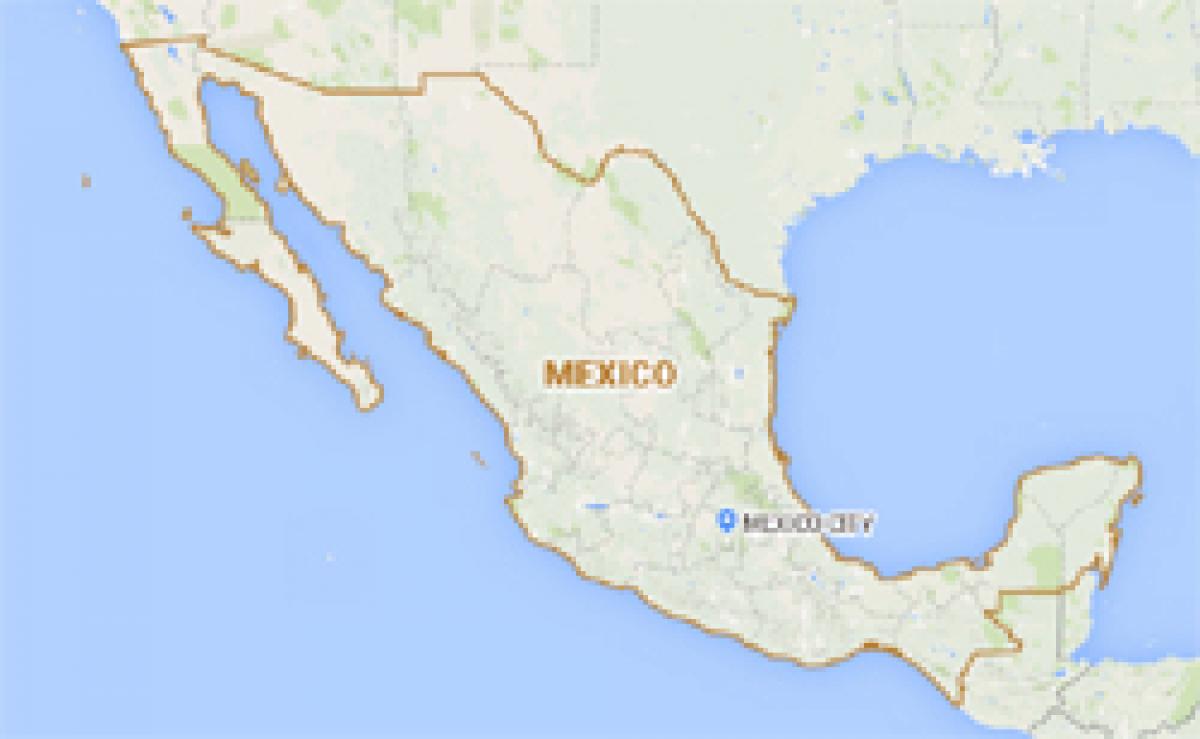Live
- G20 Leaders Will Talk About Climate, Taxes, and Trump's Return in Brazil
- COP29: CDRI announces $8 million funding for 12 projects to address climate crisis
- Anti-Telgu remarks: Actor Kasthuri Shankar moves court for bail
- Samsung AR Smart Glasses Set to Launch in 2025, Featuring Ray-Ban Meta-Like Design
- Kerala Industries Minister confident that new policy will boost plantation sector
- Madras HC plans inter-departmental monitoring committee to combat drug use in TN
- Bihar: Spotted deer dies due to heart attack in Banka district
- Mushtaq Ali T20: Shami to spearhead Bengal bowling attack, Gharami named captain
- Kharge's clarion call to oust Maharashtra's BJP-backed MahaYuti
- Why Ukraine’s Use of US Missiles Against Russia Could Lead to World War 3
Just In

x
Highlights
His face lit up every time he mentioned his destination the United States but like many Central American children, Juan\'s dream ended abruptly when Mexican officers caught him riding a freight train.
His face lit up every time he mentioned his destination the United States but like many Central American children, Juan's dream ended abruptly when Mexican officers caught him riding a freight train.
The willowy 16-year-old boy's story is the same as that of thousands of minors from El Salvador, Honduras and Guatemala who are still crossing Mexico's southern border alone despite a crackdown on illegal migration.
Juan was detained once before in Mexico City and deported back to Honduras months ago, but his mother urged him to grab his backpack again and navigate the perilous route north, where criminals often exploit and attack migrants.
"If they kill me, they kill me, and if I stay alive, I just keep going forward," Juan, whose name was changed for security reasons, said after a failed attempt to hop on the train known as "La Bestia," which is moving faster these days to prevent migrants from hitching a ride.
"I want to escape my economic situation and the violence. I want to flee the gangs, the drugs, because if I return to Honduras, they can kill me," he said after walking in scorching temperatures for days.
Initially, he had managed to "only" be robbed in Guatemala, where his shoes and clothes were stolen at gunpoint.
But his trip came to a sudden halt when migration agents raided the train at around midnight recently near Palenque in Mexico's southern state of Chiapas.
This time, his face lit up in the glare of a flashlight as officers bundled the frightened teen and a dozen other migrants into a van that would haul him to a detention center.
Surge in Detentions
Juan was caught in a massive dragnet that Mexico's government launched in July last year after Washington declared an emergency following an influx of unaccompanied minors who were pouring into the United States.
The flow of child migrants has slowed at Mexico's northern border, with US official figures showing that some 23,000 unaccompanied minors were detained between October and June, half as many as the same period in the previous fiscal year.
Meanwhile, detentions have surged in Mexico, with 6,113 minors traveling alone picked up between January and May, or 20 percent more than the same period last year, according to government data.
For Franciscan friar Tomas Gonzalez, a prominent activist who runs a migrant shelter in Tabasco state, last year's emergency became an excuse to launch Mexico's Frontera Sur anti-illegal migration program.
"Minors have been migrating for more than 10 years. This crisis was invented to justify the Frontera Sur program and the wave of repression," Gonzalez said.
US President Barack Obama has asked the Congress to approve $1 billion in aid to Central American nations, while activists say a structural solution is needed to end the poverty and violence that drive migration.
'I'll Try Again'
The deportations have not discouraged many Central American children.
Mauricio, a curly-haired 16-year-old, was almost at the Texas border when he was caught and returned to Honduras. He was back in Mexico two months later.
"If they catch me, I'll try again, until I get there," said the farmers' son who wants to give a better life to his mother and four brothers.
Many others are making the journey for the first time.
Carlos Antonio, a 17-year-old Honduran, was resting on the side of a road with others after walking for 48 hours without a bite to eat.
"We have come with God's good grace," Carlos said, who had blisters "as big as fingers" on his feet and claimed that police in Mexico had taken his belongings.
Another Honduran named Alberto, 15, hoped to reach Texas where he could find a job that pays more than the $4.50 a day he made back home.
"It's tough there (in Honduras) with the gangs. Most young people join them. It's an easy life but a risky one. Better to take risks here than over there," he said, before swinging his backpack over his shoulder and continuing his journey.

Next Story
More Stories
ADVERTISEMENT
© 2024 Hyderabad Media House Limited/The Hans India. All rights reserved. Powered by hocalwire.com







